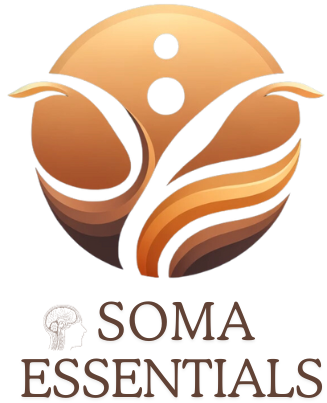Improving Mind-Body Connection: The Power of Embodied Self-Inquiry Practice
In today’s fast-paced and high-stress world, it’s easy to feel disconnected from our bodies. We often prioritize our mental and emotional well-being over our physical health, leading to a disconnect between our mind and body. However, research has shown that this mind-body connection is crucial for overall well-being and can greatly impact our quality of life. This is where embodied self-inquiry practice comes in. This powerful practice involves exploring and understanding the connection between our thoughts, emotions, and physical sensations through somatic psychology techniques. By delving deep into our own bodies and minds, we can improve our mind-body connection and ultimately lead more fulfilling lives. So let’s explore the world of embodied self-inquiry practice and discover its transformative potential in enhancing our overall well-being.
To start, let’s define what embodied self-inquiry practice is. It is an approach that combines somatic therapy, exercises, and principles of somatic movement and healing to help individuals become more aware of their bodies and emotions. Through this practice, we can gain a deeper understanding of ourselves and the root causes of any physical or emotional imbalances we may be experiencing. By using the body as a gateway to our inner world, we can foster healing and personal growth.
Embodied self-inquiry practice is based on the belief that our bodies hold onto past experiences and traumas, which can manifest in physical or emotional symptoms. By bringing awareness to these sensations and experiences, we can process and release them, leading to improved well-being.
One of the main techniques used in embodied self-inquiry practice is somatic exercises. These exercises involve paying attention to different parts of our body and any sensations or emotions that arise. This can include body scans, where we slowly bring our attention to each part of our body, noticing any tension or discomfort. By doing this, we can become more aware of any areas that may need attention and release any built-up tension.
In addition to exercises, principles of somatic movement are also incorporated into this practice. These movements involve using the body to express and release emotions, such as through dance or expressive movements. By allowing our bodies to move freely and without judgment, we can release pent-up emotions and gain a deeper understanding of ourselves.
Through embodied self-inquiry practice, we can also cultivate a sense of presence and mindfulness. By bringing our attention to our bodies and sensations in the present moment, we can let go of worries or distractions and fully connect with ourselves. This can lead to a greater sense of calmness and well-being.
In today’s fast-paced world, it’s easy to become disconnected from our bodies. We often prioritize productivity over well-being, leading to physical and emotional imbalances. This is where embodied self-inquiry practice comes in – a powerful tool for improving our mind-body connection and overall well-being. Whether you’re new to somatic psychology or looking to deepen your practice, this article will cover all you need to know about embodied self-inquiry practice.
Somatic Movement: The Body’s Wisdom
Somatic movement is based on the belief that our bodies hold wisdom and have the ability to heal themselves. By tuning into our physical sensations and movements, we can access this wisdom and promote healing. Somatic movement practices, such as yoga or tai chi, can help us become more embodied and present in our bodies. This can lead to improved physical health, increased flexibility and strength, and reduced stress and tension.
Somatic Therapy: Healing from Within
Somatic therapy is a type of psychotherapy that focuses on the mind-body connection. It recognizes that our physical sensations, emotions, and thoughts are all interconnected. By working with a trained somatic therapist, individuals can explore how their experiences have impacted their body and vice versa. Through this process, individuals can develop a deeper understanding of themselves and heal from past traumas or negative patterns.
Somatic therapy can be helpful for anyone looking to improve their mind-body connection, but it is especially beneficial for those struggling with anxiety, depression, or chronic pain.
Somatic Psychology: Navigating the Inner Landscape
Somatic psychology is a branch of psychology that focuses on the mind-body connection. It recognizes that our bodies hold valuable information and can be used as a tool for self-discovery and healing. Through somatic psychology techniques, individuals can explore their inner landscape and gain a deeper understanding of their emotions, behaviors, and beliefs.
This approach can help us cultivate body awareness, self-compassion, and a stronger sense of self.
Somatic Movement: The Body’s Wisdom
Somatic movement is based on the belief that our bodies hold wisdom and have the ability to heal themselves. By tuning into our physical sensations and movements, we can access this wisdom and promote healing. Somatic movement practices, such as yoga or tai chi, can help us become more embodied and present in our bodies. This can lead to improved physical health, increased flexibility and strength, and reduced stress and tension.
Somatic Movement: The Body’s Wisdom
Somatic movement is based on the belief that our bodies hold wisdom and have the ability to heal themselves. By tuning into our physical sensations and movements, we can access this wisdom and promote healing. Somatic movement practices, such as yoga or tai chi, can help us become more embodied and present in our bodies. This can lead to improved physical health, increased flexibility and strength, and reduced stress and tension.
Embodied self-inquiry practice is a powerful tool for improving our mind-body connection and overall well-being. By incorporating somatic therapy, movement, and psychology into our lives, we can become more embodied and present in our bodies. This practice can help us release tension, reduce stress, and cultivate a deeper understanding of ourselves. If you’re looking to improve your mind-body connection, consider incorporating embodied self-inquiry practice into your daily routine.

